I used the Sweat workout app for two weeks to build and maintain strength without the gym. Here are my four major takeaways
The Sweat workout app offers a range of home workouts—with and without equipment
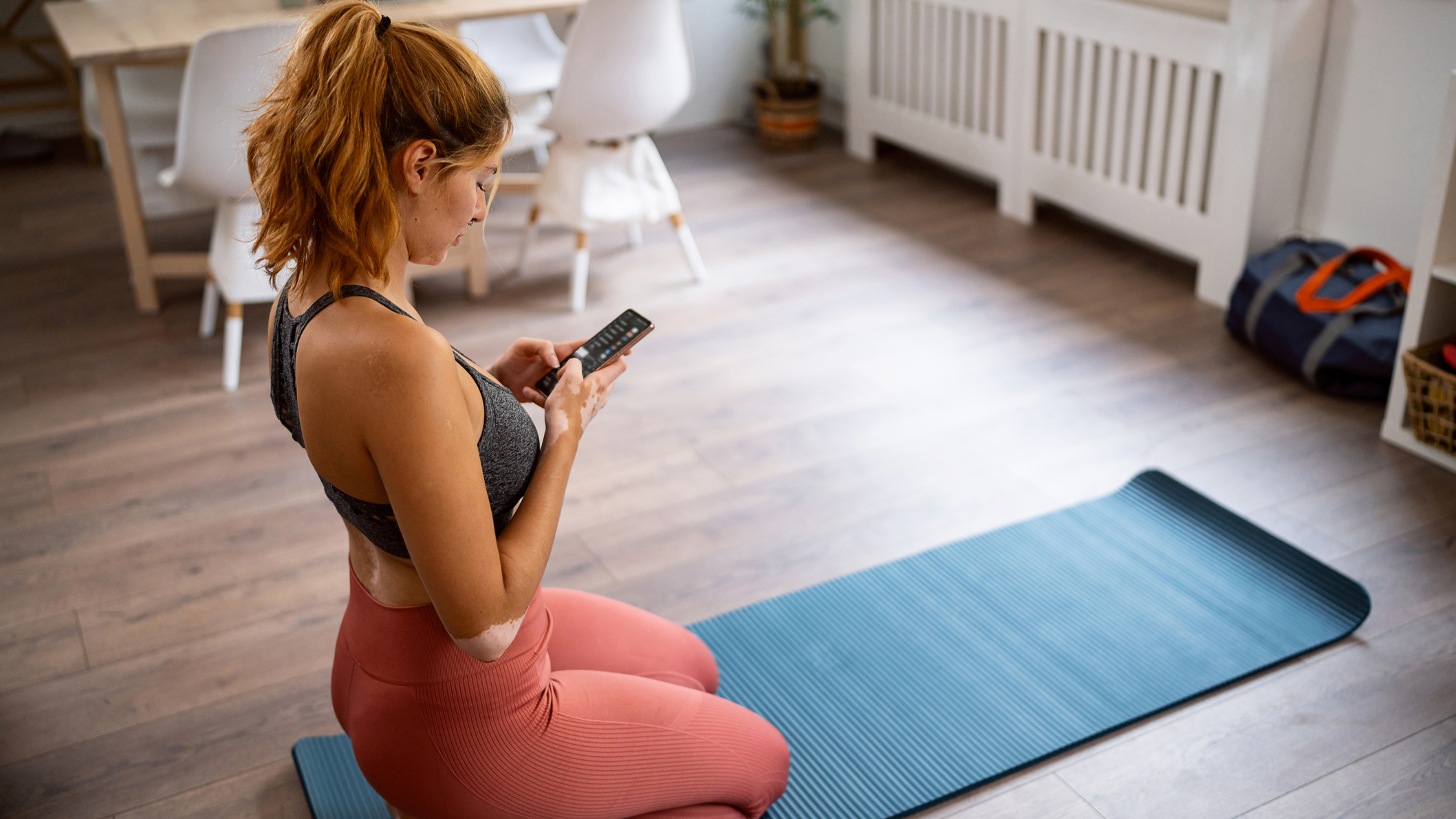
I've been a regular gym-goer for three years now, two of which have been spent at a CrossFit box, with a focus on weight-training. When it comes to building strength and improving my fitness, I know that lifting weights is what gets me results.
However, I regularly travel, and sometimes when I'm away or busy with work I don't make it to the gym as often as I'd like. As a result, I'm trying to incorporate more home workouts into my routine. In lieu of a coach and guided workouts at the gym, I decided to try the workout app Sweat created by the personal trainer Kayla Itsines, who also posts workouts online to more than 16 million Instagram followers.
Heading on a two-week holiday without access to the gym, I put the app to the test, swapping out my regular gym-based workouts to see if bodyweight routines, with the help of some resistance bands, could be as effective as lifting weights. One benefit of using fitness apps is that they tend to be more affordable than a gym membership, with Sweat costing $19.99 a month. This includes workouts and advice from personal trainers, as well as access to meal plans and shopping lists.
There are a range of programmes and workouts available on the app, including Pilates, yoga, barre, cardio and options for people who are pregnant or post-natal. I set up my profile choosing three fitness goals: build muscle, get fitter and get stronger.
I was then presented with a number of workouts, many of which were Pilates and barre-style, while some were focussed on HIIT and strength. I was hoping to use the app three or four times a week, doing a range of bodyweight workouts that were designed to build strength.
The Sweat app is specifically designed for women (we even rated it as the best workout app for women, in our recent round-up) but it features a range of workouts and meal options, so seems to be suitable for everyone.
The Sweat app packs in various types of workout from a wide list of trainers; low-impact, high-intensity, pre-natal—the list goes on. It also includes nutritional advice and recipes.
1. Bodyweight workouts can be just as challenging as lifting weights
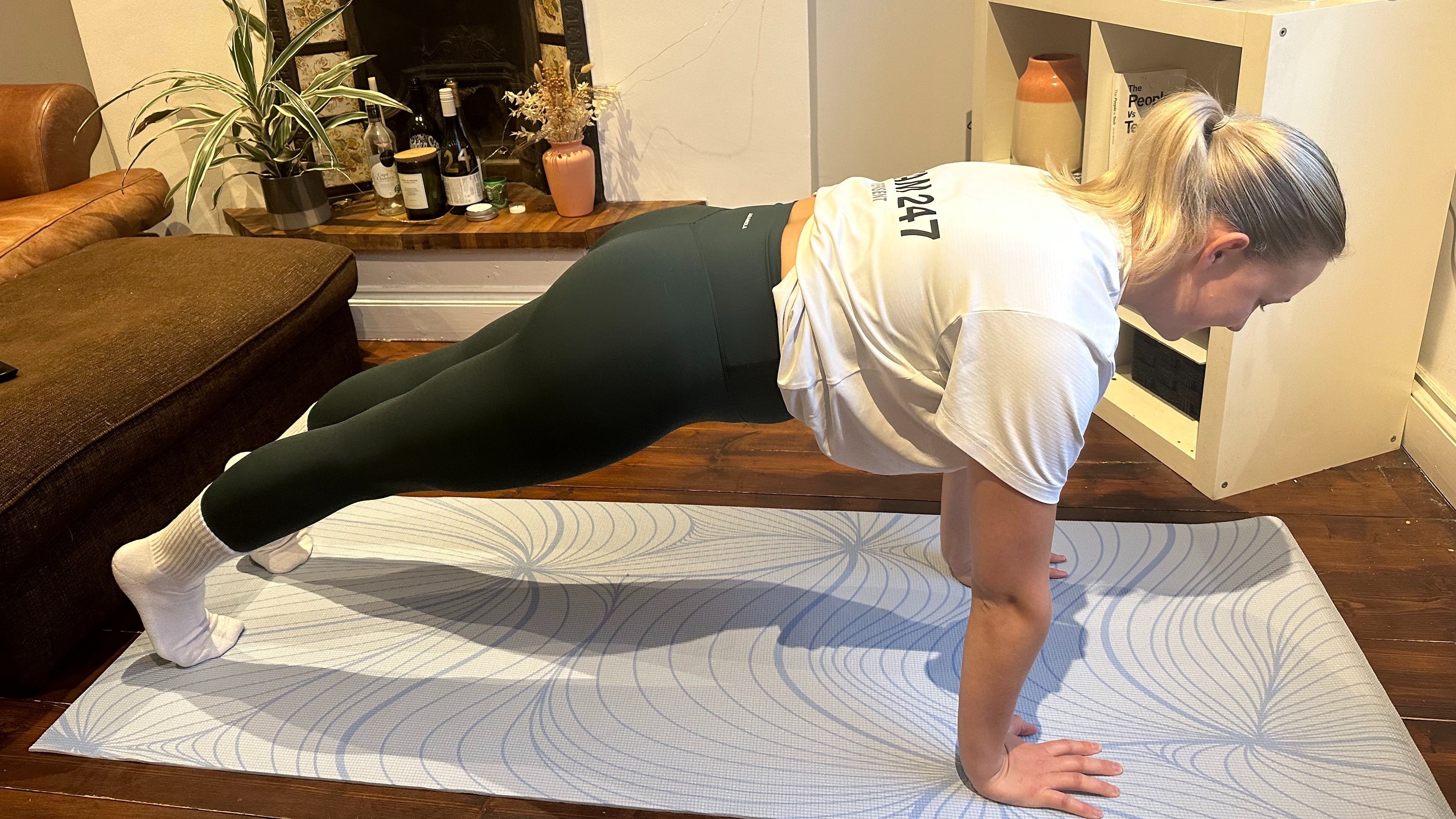
I assumed that exercising without weights would make the Sweat workouts less challenging than my usual gym-based sessions. However, most of the routines I tried via the app, including a 12-minute Pilates-style core workout and a 30-minute HIIT workout, had my muscles burning and my heart rate high.
Get the Fit&Well Newsletter
Start your week with achievable workout ideas, health tips and wellbeing advice in your inbox.
I felt as though I was still building strength via bodyweight workouts and I noticed that I was targeting my core more than I usually do when taking on compound or isolated exercises at the gym.
Working with my bodyweight during movements like planks and deadbugs meant that my core was constantly engaged. I also had to focus on my balance and posture, something that I also often dismissed during weight-training.
In the future, I think a combination of weight-based workouts and bodyweight routines will help me get the results I want when it comes to building strength and improving my fitness. I also think I'll continue to use some of the workouts on the Sweat app to meet my goals.
2. The workouts are engaging and easy to follow
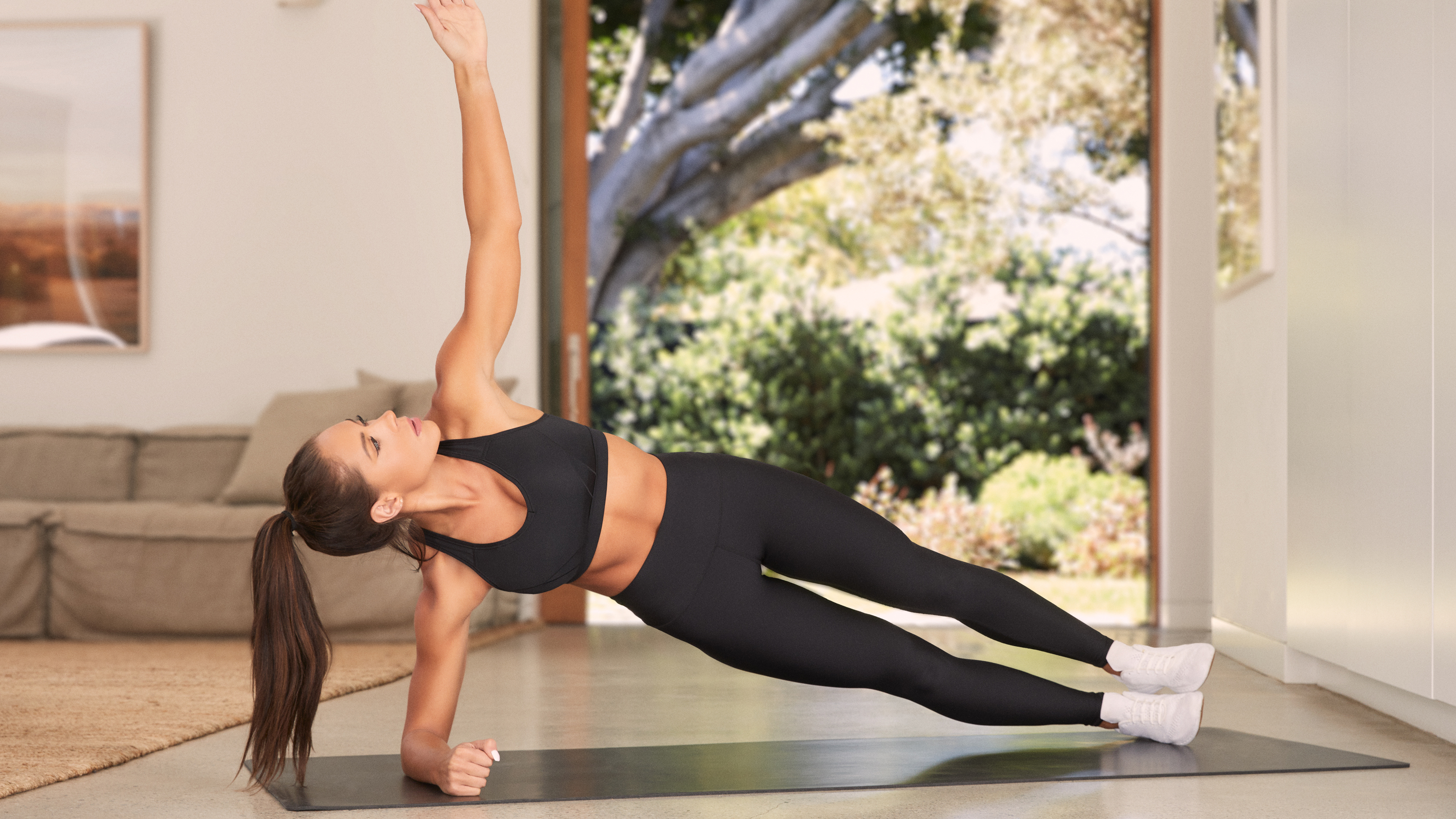
Sweat app trainer Kelsey Wells demonstrating a low-impact strength routine at home
I often find myself frustrated with online workouts, with lots of rambling or confusing directions, compared with in-person classes. I was pleased to discover that the workouts on the Sweat app are easy to follow, with a simple video demonstration of each move and either a rep count or a timer, depending on the style of exercise. You can then move through each exercise separately, rather than watching one continuous video, which I found to be more engaging.
There's also no music playing in the background of the videos, so I was able to listen to the music I wanted, as well as podcasts—which made the workouts more enjoyable.
3. The food options were simple and clear, but could be more varied

There are plenty of recipe ideas on the Sweat app; some looked delicious, including a Greek pasta salad and a salmon niçoise salad. However, I like to cook and experiment with my food and many of the options were things I'd made before, so I wasn't interested in them.
That said, the food options are nutritious and if you're looking for an easy-to-follow food plan, including snacks, the Sweat app has you covered. It even formulates the ingredients for each of the recipes into a shopping list and you can swap out ingredients if you don't like them.
I particularly liked that the app doesn't obviously display calories, which is great for anyone who may struggle with disordered eating and/or feel triggered by this type of information.
4. There could have been more options for short workouts
As I was mainly using the Sweat app on holiday, sometimes I wanted shorter workouts that I could do quickly in the mornings or before lunch. However, there weren't any workouts on the app that were less than 10 minutes long, which would have been a good option, particularly as sometimes I like to combine two different workouts.
There are a few options for express workouts, some of which are 10 minutes, but mostly they are 15-30 minutes long. If you're using a fitness app as your main form of exercising, it's ideal to be moving for this length of time. However going forward, I'd like to use the Sweat app alongside my usual workout routine, so shorter workouts would be useful.
Should you subscribe to Sweat?
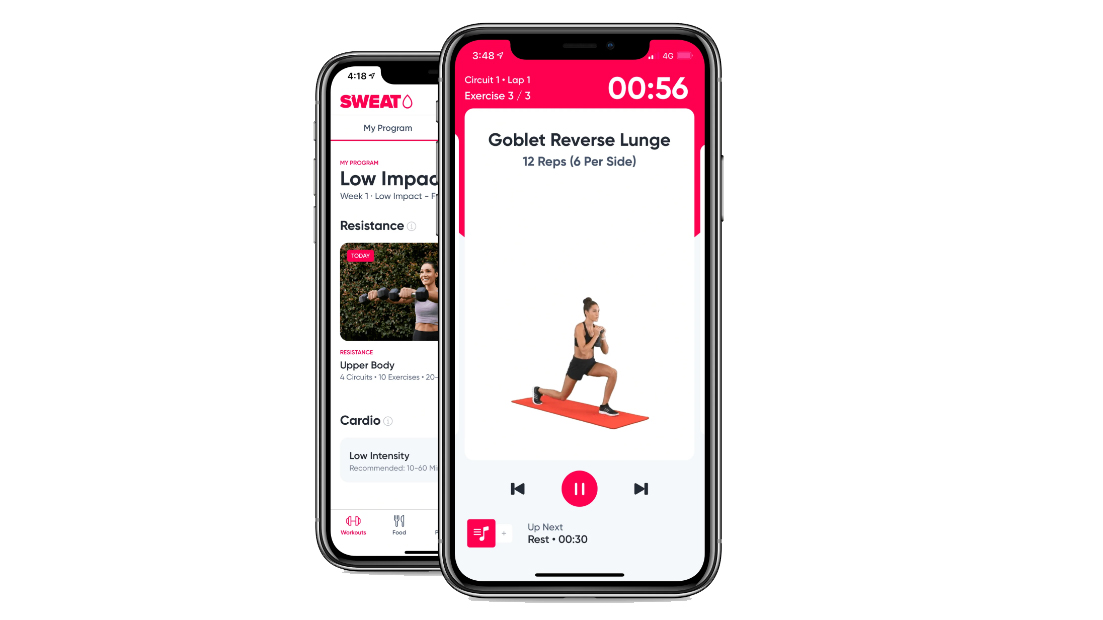
You can't fault the Sweat app when it comes to straightforward, effective workouts, and with different types of exercise styles to try out, too. It's beginner-friendly and if you're interested in guided workouts with tips from expert coaches, Sweat is a great affordable option.
As someone who is more experienced with exercise and has tried lots of different classes, online and in-person, I was impressed with the standard of the workouts on the app, particularly the Pilates and barre workouts, which I enjoyed and will be adding into my routine.
Sweat is suitable for people with a wide range of goals, but its programmes are particularly useful for women who want to build strength from home.
Alice Porter is a freelance journalist covering lifestyle topics including health, fitness and wellness. She is particularly interested in women's health, strength training and fitness trends and writes for publications including Stylist Magazine, Refinery29, The Independent and Glamour Magazine. Like many other people, Alice's personal interest in combining HIIT training with strength work quickly turned into a CrossFit obsession and she trains at a box in south London. When she's not throwing weights around or attempting handstand push-ups, you can probably find her on long walks in nature, buried in a book or hopping on a flight to just about anywhere it will take her.
-
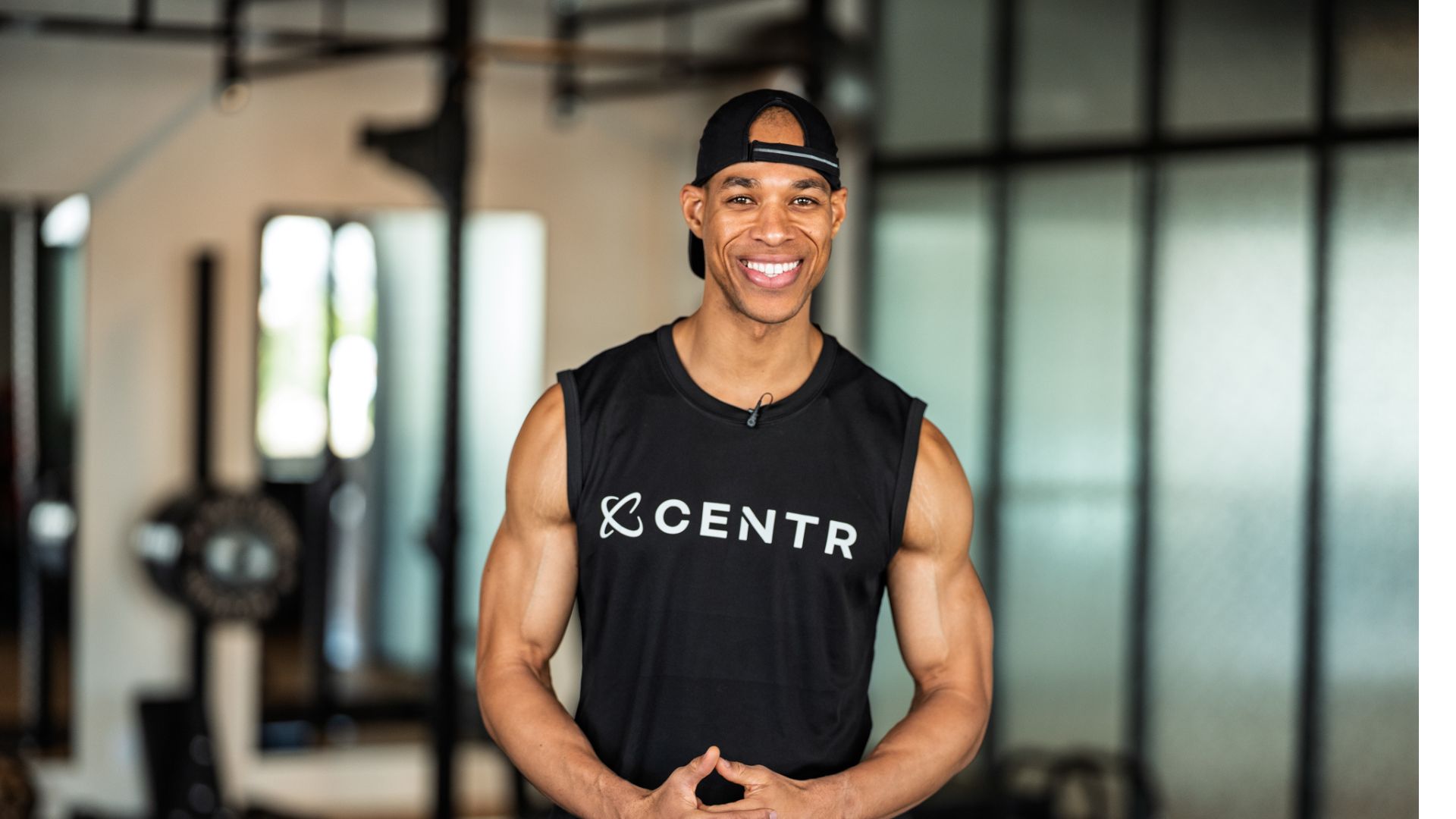 I do these two things every day to stay fit and healthy, says the newest star trainer on Chris Hemsworth's fitness app
I do these two things every day to stay fit and healthy, says the newest star trainer on Chris Hemsworth's fitness appHere's how Centr's Korey Rowe trains for longevity
By Sam Rider Published
-
 I thought sports weren't for me, until I realised they're a game-changer for ticking off cardio
I thought sports weren't for me, until I realised they're a game-changer for ticking off cardioI swapped HIIT and running for tennis—and I've never felt better
By Alice Porter Published
